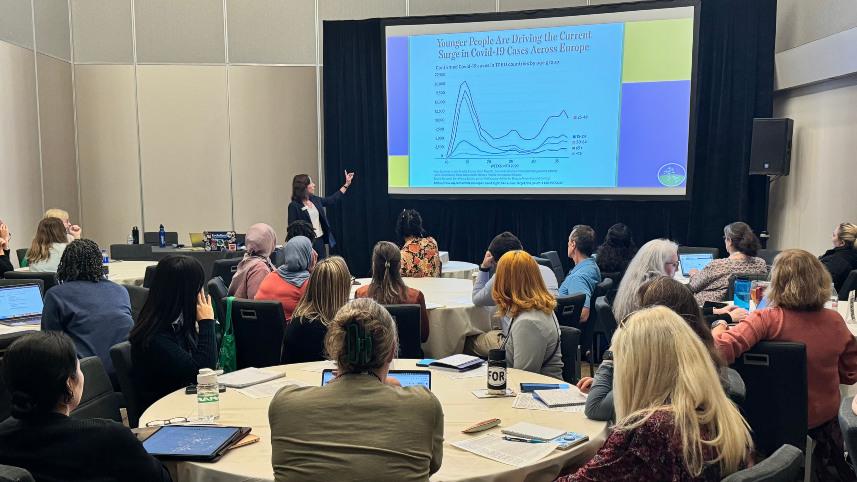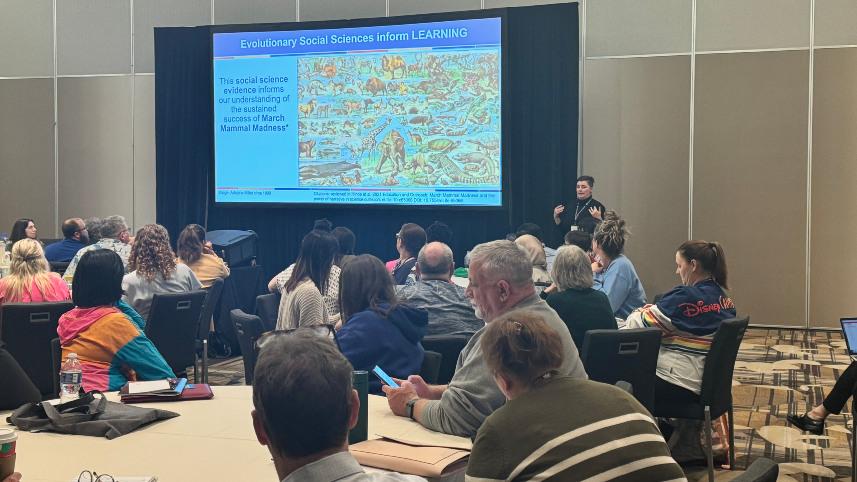At the 2024 National Association of Biology Teachers conference in Anaheim, California, the theme of NCSE’s many sessions was storytelling: How do we help students make sense of the stories being told with data and data visualizations? How can we use storytelling and games to engage students in learning about evolution and ecology? How can teachers use storylines in their classrooms every day to make climate change relevant to students? These were just a few of the questions that we asked and attempted to answer with this year’s conference participants. This annual conference brings together educators, researchers, and practitioners in the life sciences to share lessons, strategies, and innovations in the field of biology education.
NCSE’s first session was a three-hour workshop titled “Scientific Literacy in the Digital Age of Misinformation” in which Science Education Specialist Wendy Johnson and Interim Director of Education Blake Touchet introduced participants to our new scientific media literacy tool DataWISE. This tool, which has generated enthusiastic responses from teachers as we’ve begun to unveil it at professional development opportunities around the country, is grounded in the idea that students need a systematic, scaffolded approach to determine the validity and reliability of data-based claims. In other words, this is a tool to build students’ capacity to determine if the stories they are being told by data and data visualizations are trustworthy. After introducing the components of the tool (Is this Worthy of attention? Inspect the data. Does this make Sense? What Emotion is activated?) participants practiced applying the tool using our newly developed activities. They ended the session by planning out ways to incorporate the tool and activities into their regular classroom practice.
Our next session was the annual Evolution Symposium co-hosted by NCSE and NABT. This year’s event featured Katie Hinde, Associate Professor at Arizona State University’s School of Human Evolution and Social Change, and founder of March Mammal Madness. Hinde shared research linking human’s evolutionary history of sociality and collective storytelling to the success of the March Mammal Madness tournament which has helped hundreds of thousands of students across the country engage in biology, evolution, and ecology since its inception in 2013. Following Hinde’s presentation, Touchet and Teacher Ambassador Jeff Grant walked participants through NCSE’s lesson It’s Time to Lose the Ladder which guides students through the concept of convergent evolution and the creation of phylogenetic trees.








